Percentages (%)
When you say "Percent" you are really saying "per 100"
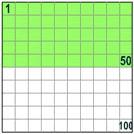 | So 50% means 50 per 100 (50% of this box is green) | And 25% means 25 per 100 (25% of this box is green) | 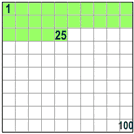 | |
Examples:
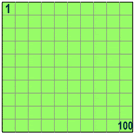 |
100% means all.
Example:
100% of 80 is 100/100 × 80 = 80
| |
 |
50% means half.
Example:
50% of 80 is 50/100 × 80 = 40
| |
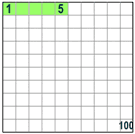 |
5% means 5/100ths.
Example:
5% of 80 is 5/100 × 80 = 4
|
Using Percent
Because "Percent" means "per 100" think:
"this should be divided by 100"
So 75% really means 75/100
And 100% is 100/100, or exactly 1 (100% of any number is just the number, unchanged)
And 200% is 200/100, or exactly 2 (200% of any number is twice the number)
Use the slider on the left and try some different numbers (example, what is 40% of 80?)
|
A Percent can also be expressed as a Decimal or a Fraction
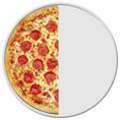 |
|
Some Worked Examples
Example: Calculate 25% of 80
25% = 25/100
(25/100) × 80 = 20
So 25% of 80 is 20
Example: 15% of 200 apples were bad. How many apples were bad?
15% = 15/100
(15/100) × 200 = 15 × 2 = 30 apples
30 apples were bad
Example: if only 10 of the 200 apples were bad, what percent is that?
As a fraction, 10/200 = 0.05
As a percentage it is: (10/200) x 100 = 5%
5% of those apples were bad
Example: A Skateboard is reduced 25% in price in a sale. The old price was $120. Find the new price
First, find 25% of $120:
25% = 25/100
(25/100) × $120 = $30
25% of $120 is $30
So the reduction is $30
Take the reduction from the original price
$120 - $30 = $90
The Price of the Skateboard in the sale is $90